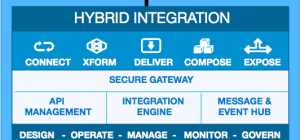 This article is about the most important aspects of email filtering and the reasons why you should consider it for your personal and business email accounts.
This article is about the most important aspects of email filtering and the reasons why you should consider it for your personal and business email accounts.
1. Don’t miss out on important emails
One of the most important reasons for email filtering is to make sure you don’t accidentally miss any important messages. For example, when you are plagued with dozens of meaningless advertisements and phishing emails on a daily basis, it is very easy to miss an important email when there is too much information in front of you. If it was something important, you could put your business in jeopardy and block yourself off from new opportunities.
2. The importance of ‘accurate’ spam filtering
Ultimately, you need to know exactly what kind of messages you want to filter - what you definitely want to avoid, what is irrelevant/relevant to your needs or interests and what does not bear any relation to your business or commercial needs. For example, if you’re a business owner, you may wish to filter out any ‘cold-calling’ emails from strangers about working opportunities at your company if you already have a full time team. However, it may not be wise to filter your emails to the extent that anything that is not from your contact list is instantly classified as junk.
3. Check your junk mail as a precaution
If you receive an email from a client who has a new email address, you may need to check your junk mail just to make sure it isn’t automatically marked as spam. No spam filtering software is 100 percent accurate. Even an accurate spam filter that correctly detects 98 percent of your emails will still incorrectly identify 2 non-spam messages as junk each day if you receive 100 emails each day. However, by adding all of your work contacts, friends, relatives and clients as your contacts, you can minimise this problem significantly.
4. Achieve a more ‘functional’ email system
Certainly, the benefits of not having to read through endless lists of useless spam messages far outweigh those rarer situations where important or non-spam emails are accidentally assigned to your junk folder. However, it’s always a good idea to periodically check your junk one a day or once a week just to be on the safe side. Even if you receive the same spam messages from different address, your filter will soon recognise consistencies (i.e. same title or word order) and automatically allocate it to your junk folder. Of course, it is quite easy to customise your spam filters to block messages from specific senders who send repeated spam.
5. Less information - less stressful for the eyes
The less information and fewer messages you see on your emails, the easier it is to manage them. By only handling relevant emails that are important to you, you don’t have to spend time deleting unwanted messages or assigning them to your junk folder. By controlling what you receive, you can run your business more smoothly and improve the efficiency of your email system, which will give you more time to focus on your other business tasks.
6. Spam is still a nuisance for small businesses
According to the Symantec Intelligence Report in June 2012, spam ratios across the globe fell by 1 percentage to 66.8 percent, which represents 1 in 1.5 emails. However, this is still particularly high, especially if you received hundreds of emails on a daily basis.
Harry Trump is a computer support advisor and technology blogger for LeraBlog and ARC Systems-providing exceptional IT support for your business.







